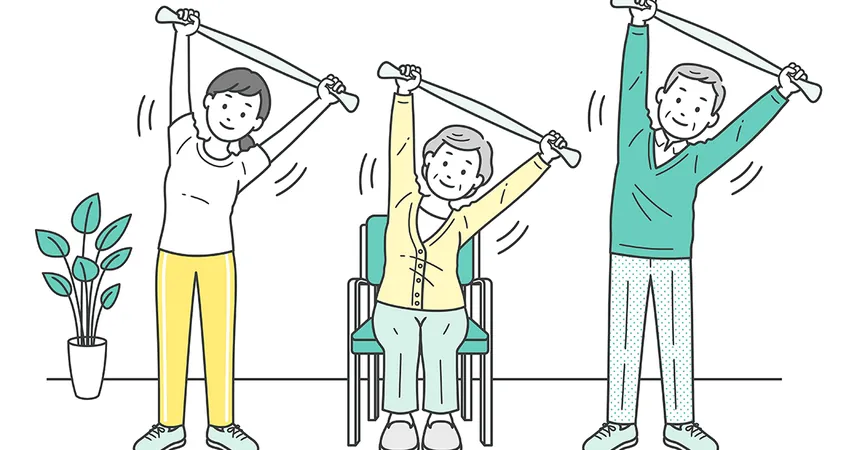
Unlocking the Power of Movement: How Staying Active Can Combat Cognitive Decline in Parkinson’s Disease
2025-09-09
Author: Daniel
Movement is Medicine for Parkinson’s Patients
If you or someone you love is grappling with Parkinson’s disease (PD), here’s some uplifting news: staying active could be a game-changer! A groundbreaking study has revealed that engaging in regular physical activity might significantly slow cognitive decline in those with PD.
The Vital Role of Exercise in PD Management
Published on August 6 in the esteemed journal *Neurology*, this research reinforces the notion that physical activity isn’t just good for the body—it's essential for the brain. It could potentially delay the progression of the disease, ease motor symptoms, and vastly enhance the quality of life for patients.
Lead author Dr. Patricia Diaz-Galvan from Virgen del Rocío University Hospital in Spain emphasizes the importance of understanding long-term physical activity effects on cognitive function, given that cognitive decline is a prevalent concern among PD patients.
Understanding the Brain’s Changes
Previous research has established a concerning link between cognitive impairments and gray matter deterioration in the brains of PD patients. Declines in memory, executive function, and visuospatial skills have been associated with thinning in crucial brain regions.
The Study: A Deep Dive into the Data
To explore how regular exercise could influence neurodegeneration, researchers analyzed data from the Parkinson's Progression Markers Initiative, a major international study launched over a decade ago. This included 120 early-stage PD patients who underwent a series of MRI scans and physical activity assessments.
The participants, averaging 60.8 years old—with 33% being women—and a control group of 164 healthy individuals, provided critical data. The researchers measured various brain regions through MRIs and assessed the impact of physical activity over time. Their activity levels were quantified using the Physical Activity Scale for the Elderly.
Exercise: A Key to Brain Health
The results were promising! Regular physical activity was linked to a reduced rate of neurodegeneration in critical brain areas responsible for cognitive function. Notably, participants who were more active experienced slower cortical thinning and better-preserved volumes in the hippocampus and amygdala.
The Path Forward: A Call for More Research
Researchers assert that their findings advocate for the inclusion of physical activity as a cornerstone of PD management. However, they stress the necessity for further studies and clinical trials to validate these results and determine the long-term effects of exercise on the brain.
Ultimately, this research holds the promise of shaping future clinical trials and treatment guidelines for PD, propelling physical activity to the forefront of innovative intervention strategies.


 Brasil (PT)
Brasil (PT)
 Canada (EN)
Canada (EN)
 Chile (ES)
Chile (ES)
 Česko (CS)
Česko (CS)
 대한민국 (KO)
대한민국 (KO)
 España (ES)
España (ES)
 France (FR)
France (FR)
 Hong Kong (EN)
Hong Kong (EN)
 Italia (IT)
Italia (IT)
 日本 (JA)
日本 (JA)
 Magyarország (HU)
Magyarország (HU)
 Norge (NO)
Norge (NO)
 Polska (PL)
Polska (PL)
 Schweiz (DE)
Schweiz (DE)
 Singapore (EN)
Singapore (EN)
 Sverige (SV)
Sverige (SV)
 Suomi (FI)
Suomi (FI)
 Türkiye (TR)
Türkiye (TR)
 الإمارات العربية المتحدة (AR)
الإمارات العربية المتحدة (AR)